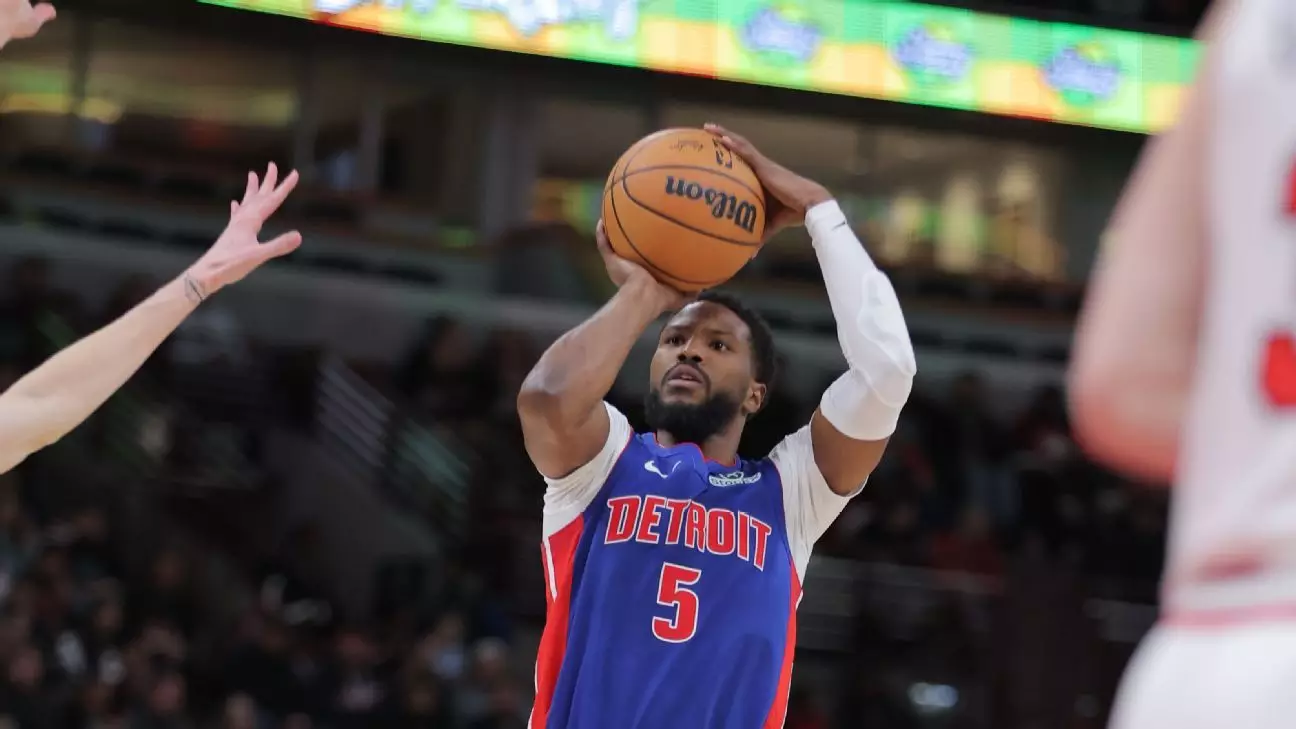The federal investigation into Malik Beasley regarding gambling activities tied to NBA games and prop bets isn’t just another isolated scandal — it punctuates a growing crisis in professional basketball that demands urgent scrutiny. This isn’t merely about a player possibly crossing ethical boundaries; it’s about the NBA grappling with the blurred lines between gambling’s relentless growth and the integrity of the sport. Beasley, a respected sharpshooter with a noteworthy career, now finds himself at the epicenter of a disturbing trend that casts a shadow over the league’s credibility.
More than a single case, this investigation unearths how players, pressured by financial incentives or personal lapses, become ensnared in gambling’s complex web. From unusual betting surges noted in sportsbooks to federal prosecutors’ involvement, the Beasley episode underlines a systemic vulnerability. The NBA, while cooperating officially, faces the challenge of both protecting its players and safeguarding the trust of millions of fans — a delicate balancing act complicated by the sport’s increasing convergence with legalized gambling.
The NBA’s Uneasy Dance with Gambling
The sports gambling industry has experienced an explosive expansion since the US Supreme Court lifted its federal ban on sports betting in 2018. This rapid growth has injected new revenues and fan engagement into leagues like the NBA, yet it also opens Pandora’s box for conflicts of interest. Malik Beasley’s case plainly spotlights this uneasy relationship, where betting companies’ infiltration into game data and player statistics creates fertile ground for manipulation — or at least suspicion thereof.
The suspicious betting patterns around Beasley’s rebounds during a January 2024 game, where odds shifted drastically before he notably exceeded the expected under threshold, are emblematic of the opaque nexus between sports performance and gambling markets. The fact that Beasley made six rebounds despite a dramatic betting storm predicting fewer than 2.5 rebounds is not a smoking gun, but it is a glaring red flag that compels deeper investigative rigor. NBA players must be held accountable, but the league also has a responsibility to educate and support players navigating a gambling landscape that is, frankly, hostile and predatory.
The Perilous Legacy of Malik Beasley
While Malik Beasley’s basketball talents are evident — a franchise-record three-point season with the Pistons and a solid career trajectory — his past legal troubles and the current allegations illustrate that his career is marred by lapses in judgment. His 2020 felony guilty plea for threats of violence and subsequent suspension demonstrate that he is no stranger to controversy. These repeated stumbles reveal a pattern where off-court issues jeopardize not only his personal brand but the league’s integrity.
The current federal probe threatens to stall Beasley’s ongoing contract negotiations with Detroit, underscoring how player missteps reverberate far beyond the individual. In a league where accountability is paramount, former cases like Jontay Porter’s NBA ban and Terry Rozier’s unresolved federal probe reinforce that gambling-related controversies are becoming a recurring menace rather than outlier events.
Why This Should Concern Fans and Stakeholders Alike
It’s tempting to view Beasley’s predicament as just another sports headline, another factual occurrence in the world of professional athletes. Yet, as a center-wing liberal who values fairness, transparency, and the safeguarding of public institutions, I contend that this issue strikes at the heart of a cultural and regulatory failure. The NBA’s growing reliance on gambling revenue, combined with insufficient safeguards for player education and welfare, risks undermining the very foundation of professional sports.
Fans deserve an untainted spectacle where the thrill is generated by athletic skill, not shadowy bets or insider information. Stakeholders, from team owners to regulators, have a moral obligation to address these vulnerabilities comprehensively, rather than reacting piecemeal as scandals erupt. The federal government’s involvement via the U.S. Attorney’s Office signals the seriousness of the threat, but the NBA must proactively institute zero-tolerance policies, enhanced player support systems, and transparency mechanisms.
A Call for Renewed Accountability and Structural Change
Malik Beasley’s case, fraught with complexity and contradiction, is a wake-up call rather than an isolated anomaly. It exposes an uncomfortable truth: the NBA, despite its global prestige, remains vulnerable to gambling’s corrosive influence, especially amid a regulatory environment struggling to keep pace with gambling’s rapid evolution. Addressing these challenges candidly and forcefully is the only path forward.
The league must move beyond perfunctory statements and limited cooperation. If it wishes to sustain its integrity and protect its players’ careers, it must embrace a bold new approach that blends rigorous investigations with empathetic player education. Only then can the NBA ensure that the dazzling performances on the court aren’t dimmed by the shadows off it.

